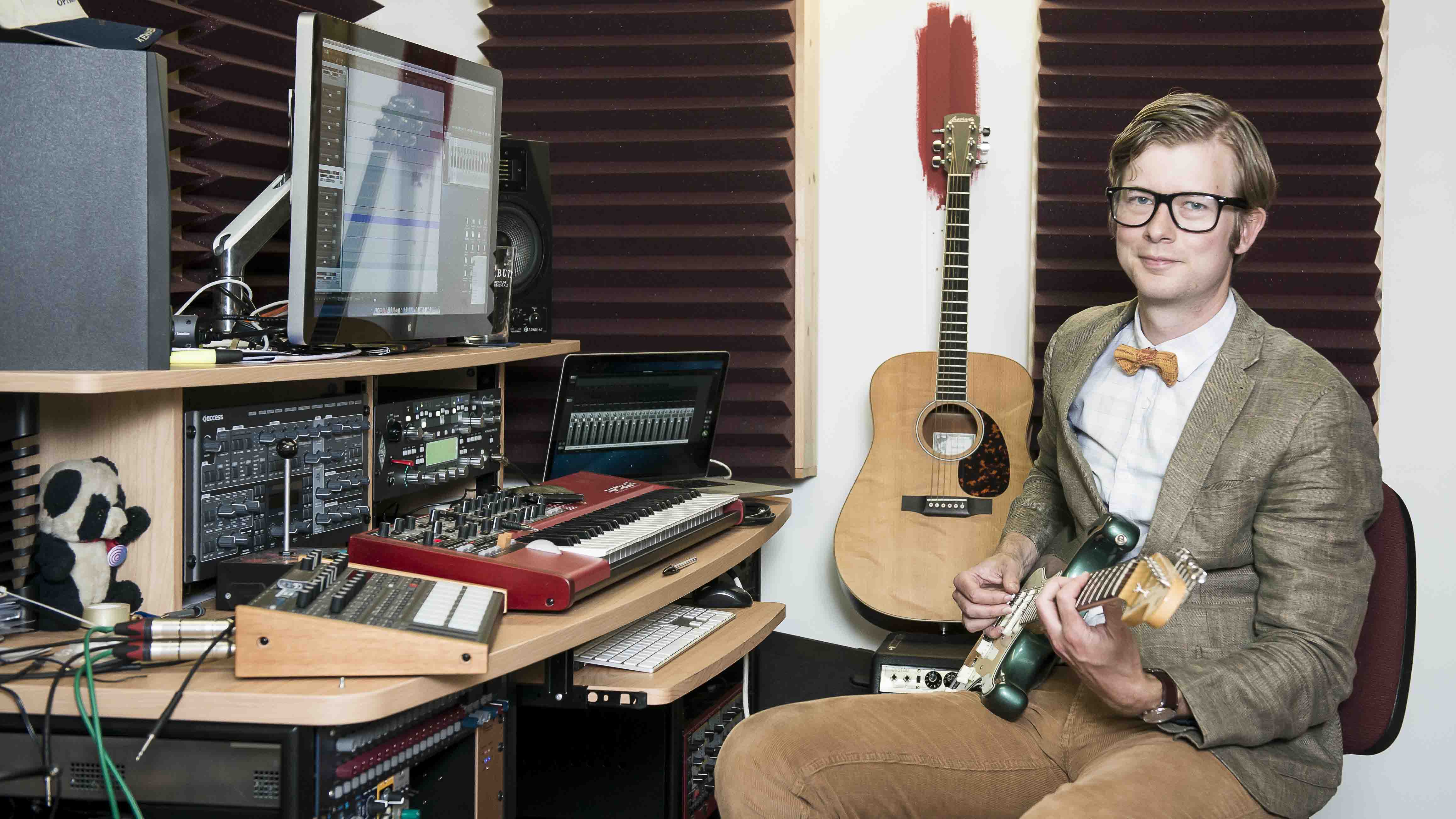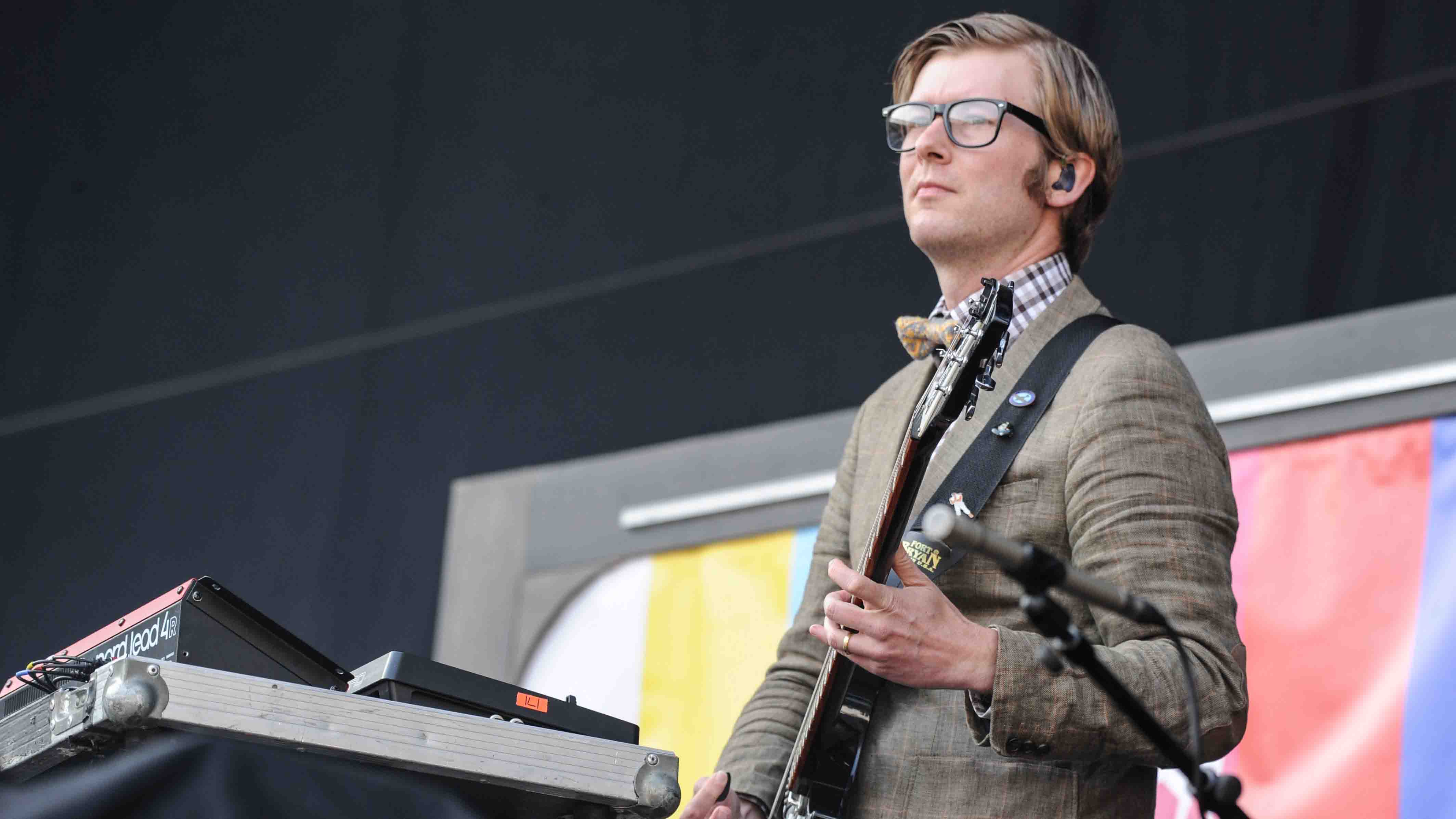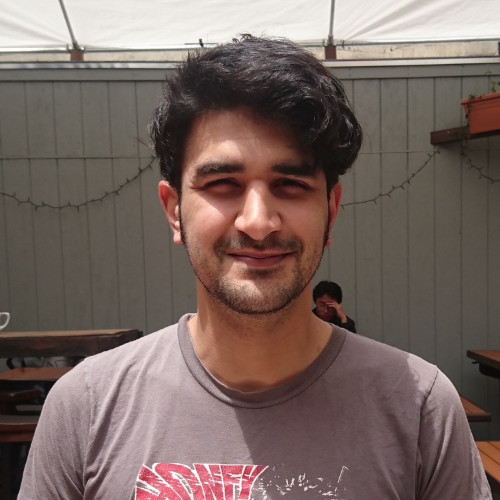Public Service Broadcasting on the surprising recording setup and abundant gear behind Every Valley
J Willgoose, Esq talks guitars, synths and the joys of tracking to tape

Committed to tape
Dismissed by some as a one-trick pony after their electric, eccentric 2013 debut Inform Educate Entertain, Public Service Broadcasting came back stronger on 2015's The Race For Space, focusing their archive samples and krautrock-inspired electronic rock on a more conceptual release.
Telling the story of the space race through samples and leftfield rock music turned out to be a winning combination, though once again the band were dogged with questions of where they would go next. These were recently answered with PSB announcing a swerve-ball: their new album would be called Every Valley and tackle the rise and fall of coal mining in Wales.
Supporting the song is clearly his main objective as a guitar player, and for that reason composer, guitar and keyboard player J Willgoose, Esq is perennially underrated as an axe-slinger. Delve into their songs, however, and you will find powerful riffs, subtle, post-rock inspired musings and odd phrasings and time-signatures galore.
We got on the phone with Willgoose to talk the new album, gear and his burgeoning synthesiser collection.
What drew you to the history of Welsh mining as a theme for the new album? It seems like quite a departure from the uplifting and broad themes of scientific progress from your debut, or the focused and inspirational narrative of The Race For Space, to something a bit darker and claustrophobic...
“It was about doing something interesting, and not just carrying on ploughing the same furrow forever. Most of the bands who I really like, and artists who I really like, don't get stuck doing the same thing all the time. They challenge themselves and try different things and grow, and you can really see a kind of evolution across their lives.
“I wouldn't say it was a claustrophobic album, except in a couple of instances. I don't necessarily think it's all doom and gloom. It is ultimately a sad story, and it's one about loss, but it's about the same things as before, about the forces that drive us forwards as a civilisation.

Public Service Broadcasting on looping, sampling and guitar gear
“It's also just looking for the first time at almost like the cast-offs from that, the things that get shoved to one side when the march of progress decides it no longer needs this, that, or the other, or no longer needs the mining industry in the UK. What happens to those communities that have grown up so heavily dependent on an industry?
“I think it's tackling the same themes [as PSB's other albums], but taking a slightly sideways glance at it this time, and looking at who gets left behind. Life is not necessarily always about onwards and upwards, happily ever after and great achievements, you know? There are setbacks, and there are sad moments, and I think it would be a mistake to avoid that entirely. That's where this album is coming from.”
What was different about the recording process for Every Valley?
“Nearly everything, really. Previously, The Race For Space tracking was three-and-a-half days in the studio, and the rest was done at home - all the guitars, all the synths, all the programming, all the editing, all the mixing. It was quite a lonely way of making a record in the end. I went slightly mad making it.
“This time, we had the luxury of over a month in Ebbw Vale. We went in and transformed this former lecture hall that's now used for live music and for community events and yoga and exercise classes and stuff into a studio of sorts, built a little control room, built a drum booth - [drummer] Wrigglesworth put up his big wooden structure there. It was a much more DIY-type way of doing it, I think.
I don't think I'll ever want to record drums not to tape again
“We had a lot more time, so we could spend more time fiddling with things and getting a bit more technical with drums, the tuning of drums and trying different things. It was a better way of making a record, and it was much less work at the other end for me, and it was less lonely I think, which can only be a good thing.
“In terms of the technicalities of it, I wanted it to be a very rich and organic-sounding album, so we did it all to tape - we bought an old tape machine, and I couldn't believe the difference it made. I could not believe the difference it made on drums! I thought it'd make a difference and it'd be worth doing, that I'd appreciate the difference, but as soon as we put a kick drum - well, anything - through it, it was just like ‘Jesus! That sounds amazing!’
“I don't think I'll ever want to record drums not to tape again. It was all in one room, control room and players, so there weren't those barriers that you get in a studio environment; it just felt a lot more natural and hopefully quite relaxed, most of the time.”

Monkeying around
What guitar gear was used on the record?
“It was all real amps. In the past, it had been a mixture of amp sims and real amps; on The Race For Space Valentina was a real amp, Go! was a real amp, Tomorrow was a real amp, but I think the rest of it was amp sims including Gagarin and Sputnik and all that. There's nothing on this [album] that's not gone through an amp, which I think again makes it feel a bit more grounded in reality, almost imperceptibly.
We had a day of me going a bit mad, mic'ing up amps and going, ‘It doesn't sound like a bloody amp; it sounds crap’
“We kept it pretty simple - we had a day of me going a bit mad, mic'ing up amps and going, ‘It doesn't sound like a bloody amp; it sounds crap.’ I think we were trying to be too clever, trying loads of different mics in different positions. In the end we stuck a Royer about a foot away from the cab and it sounded great, so we used that. So that ended up being the sound for most of the album.
“I've got a Three Monkeys guitar amp, which is this company based in North Carolina. I only know about them because My Morning Jacket use their amps on stage, and I remember seeing these weird trapezoid-shaped guitar cabs they have and being like, ‘What the heck is that? That looks really cool, and it sounds amazing.’ I bought a shop-damaged one from America, and it's just an amazing amp.
“We had a Fender Twin as well, which we used for some things, and we have an old beaten-up Roost amp, which is this company that was based in Southend for a while in the ’80s. We mucked about a bit, but the more we recorded, the more we were like, ‘It's the Three Monkeys every time.’ It's a really versatile amp; it's got different voicings for the valve positions - it just sounded bloody brilliant.”
Did you use software for effects or actual pedals?
“There were a whole load of different pedals - some of the Chase Bliss stuff, the Eventide H9, which is an amazing pedal, and the Chandler Germanium Overdrive, which came out for All Out, and a couple of fuzz pedals on that as well. I was really pleased with how it sounded; it was nice to be able to take the time to get the sounds right.”

The gig rig
What have you taken out on tour in the past, and will that change for this touring cycle?
“For the first time, I'm taking all the guitars, including those for the old songs out of the computer [and not using amp sims]. We had a Kemper [in the studio], so we profiled the amps we used on the album and we're going to try and recreate the stuff we used on previous albums [to use live].
“I've got a modest-sized pedalboard, but it packs a punch; it's a bit ridiculous actually - it's two rows of pedals. On the top row you've got three H9s, which is quite a lot of power, and on the bottom there's a Pigtronix Infinity looper which should do the looping; it's behaving itself mostly at the moment.
“Then there's the Catalinbread Topanga which is the little spring reverb stomp we used on You And Me and which is nice to use almost as a little boost but with some twang to it. At the top of it all - it didn't get used on a lot of the album - but I've got a Klon [Centaur] rip-off pedal. I can't remember who made it, but in American fashion, it's called the [Piedmont Custom Electronics] Aluminium Falcon and it's a two-channel overdrive thing. I've just been working out how to do Gagarin through it, and for that kind of ’70s overdrive it's beautiful.”
You're also well-known for your synthesiser use - what can be found on the new record?
“For this album, I bought a fair amount of gear across the board, really. I bought a rackmount Moog, the new Dave Smith Prophet 6, and a Modal synthesizer, a 002R. They're a small British company making interesting stuff.”

Public Service Broadcasting on looping, sampling and guitar gear
Will you take those on the road?
“For the last album tour, we took the Nord Lead 4 out and we took the Virus Snow out, and they've been great. Again, they're not actual analogue, but they can do a good job of sounding like it if you want them to. They've both been very reliable, which is obviously very important!
“Initially, I thought I definitely wanted to take the Moog out [for this album tour], but I just think it's not going to work. I don't have the room for it and it takes us over a certain number of inputs, so I think I'm going to have to sample it, and just keep the Nord and the Virus. It's a shame, but it's a whole other level of headache bringing actual analogue stuff on the road with you!”
Every Valley is out on 7 July via PIAS Recordings.
Alex Lynham is a gear obsessive who's been collecting and building modern and vintage equipment since he got his first Saturday job. Besides reviewing countless pedals for Total Guitar, he's written guides on how to build your first pedal, how to build a tube amp from a kit, and briefly went viral when he released a glitch delay pedal, the Atom Smasher.
